Two Miniatures (1896)
Viktor Kalinnikov (1870 – 1927)
Saxophone Quartet - variable scoring
Two Miniatures by Viktor Kalinnikov, arranged for saxophone quartet – variable scoring. Viktor Kalinnikov was a Russian composer whose music was strongly influenced by Russian folksong as well as the music of Tchaikovsky. Most of his music is for the Russian Orthodox Church. His Two Miniatures for String Quartet, the source of this transcription, was written in 1896. The first movement, marked andantino, is a lyrical treatment of a sentimental folk-song like melody. It benefits greatly from a fluid attitude towards the tempo and a very leisurely pace . The second movement, a sprightly allegretto, is the opposite in every way from the first. It is a short, straightforward Russian folk theme with lots of rhythmic drive that moves along at a brisk tempo.
This arrangement of Two Miniatures is for saxophone quartet – variable scoring. The following parts are included:
- AATB sax quartet score (alternate parts are not shown in score)
- Part 1 – Alto Sax 1 or Soprano Sax
- Part 2 – Alto Sax 2 or Tenor Sax 2
- Part 3 – Tenor Sax 1 or Alto Sax 3
- Part 4 – Baritone Sax, Tenor Sax 3 or Bass Sax
So long as parts 1 through 4 are covered, this arrangement may be played with any combination of saxophones. Due to their range, the alternate parts may be somewhat more difficult.
- The range for each saxophone part is shown below.
- The audio samples above are of the first thirty seconds of each piece.
- Registered users may download a full length audio file and complete sample score for Two Miniatures by Kalinnikov on the ‘Samples’ tab .
About The Composer
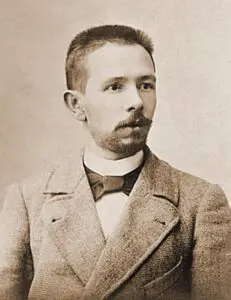 Viktor Sergeevich Kalinnikov, also Victor (Russian: Ви́ктор Серге́евич Кали́нников; 2 March [O.S. 18 February] 1870 – 23 February 1927), was a Soviet choral composer, conductor and teacher. He was the younger brother of the better-known symphonic composer Vasily Kalinnikov (1866–1901).
Viktor Sergeevich Kalinnikov, also Victor (Russian: Ви́ктор Серге́евич Кали́нников; 2 March [O.S. 18 February] 1870 – 23 February 1927), was a Soviet choral composer, conductor and teacher. He was the younger brother of the better-known symphonic composer Vasily Kalinnikov (1866–1901).
He studied at the seminary in Oryol, then at the Moscow Philharmonic School, taking oboe and music theory. He played in various theatre orchestras and taught singing at schools in Moscow. From 1899 to 1901 he headed the orchestra of the Moscow Art Theatre. Victor attended then taught at the Moscow Synodal School of Russian Orthodox Church music, where he composed 24 sacred choral settings for the Russian Orthodox All-Night Vigil and Divine Liturgy. From 1922 to 1926 he taught at the Moscow Conservatory. His compositions were popular and well received by critics. He died in Saltykovka, a suburb of Balashikha near Moscow.

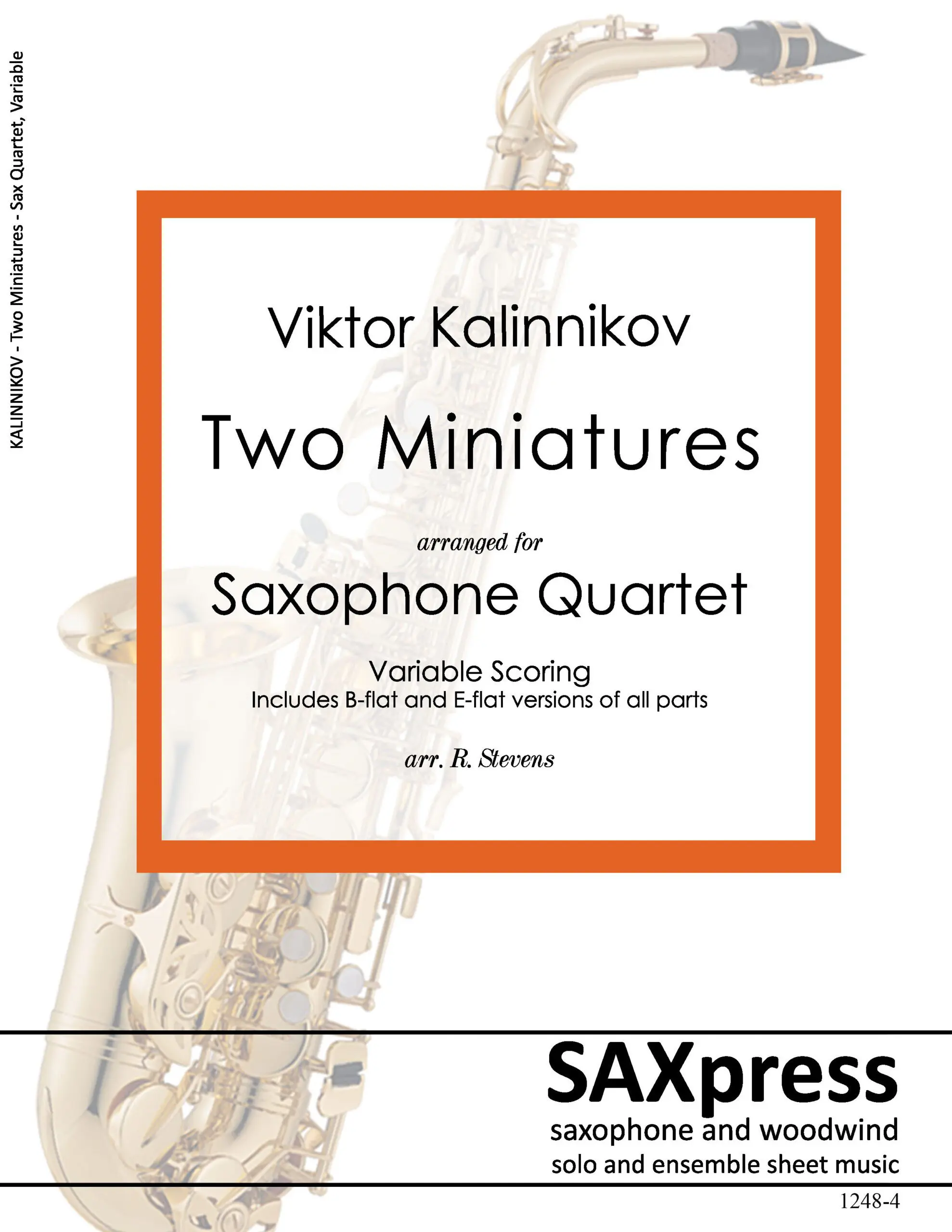
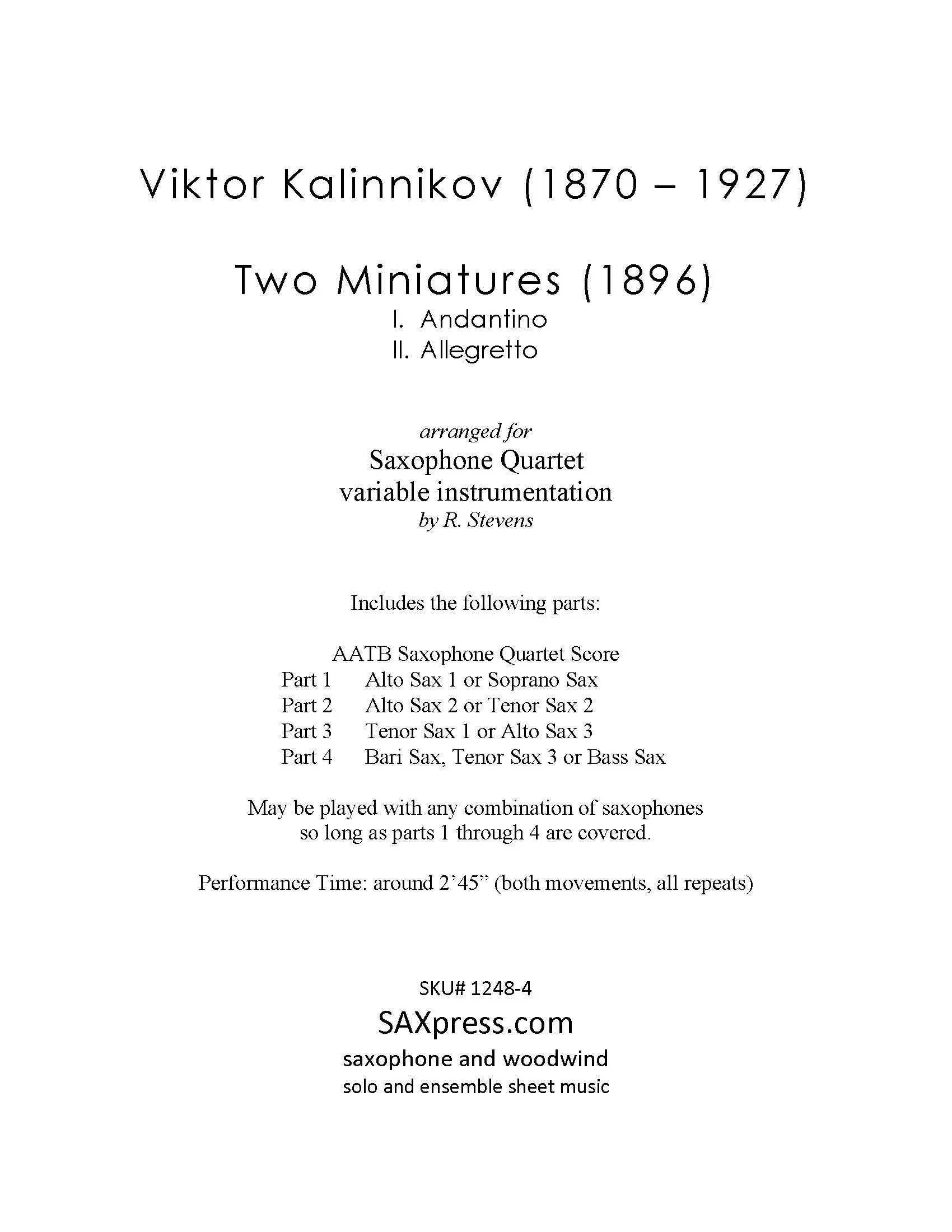
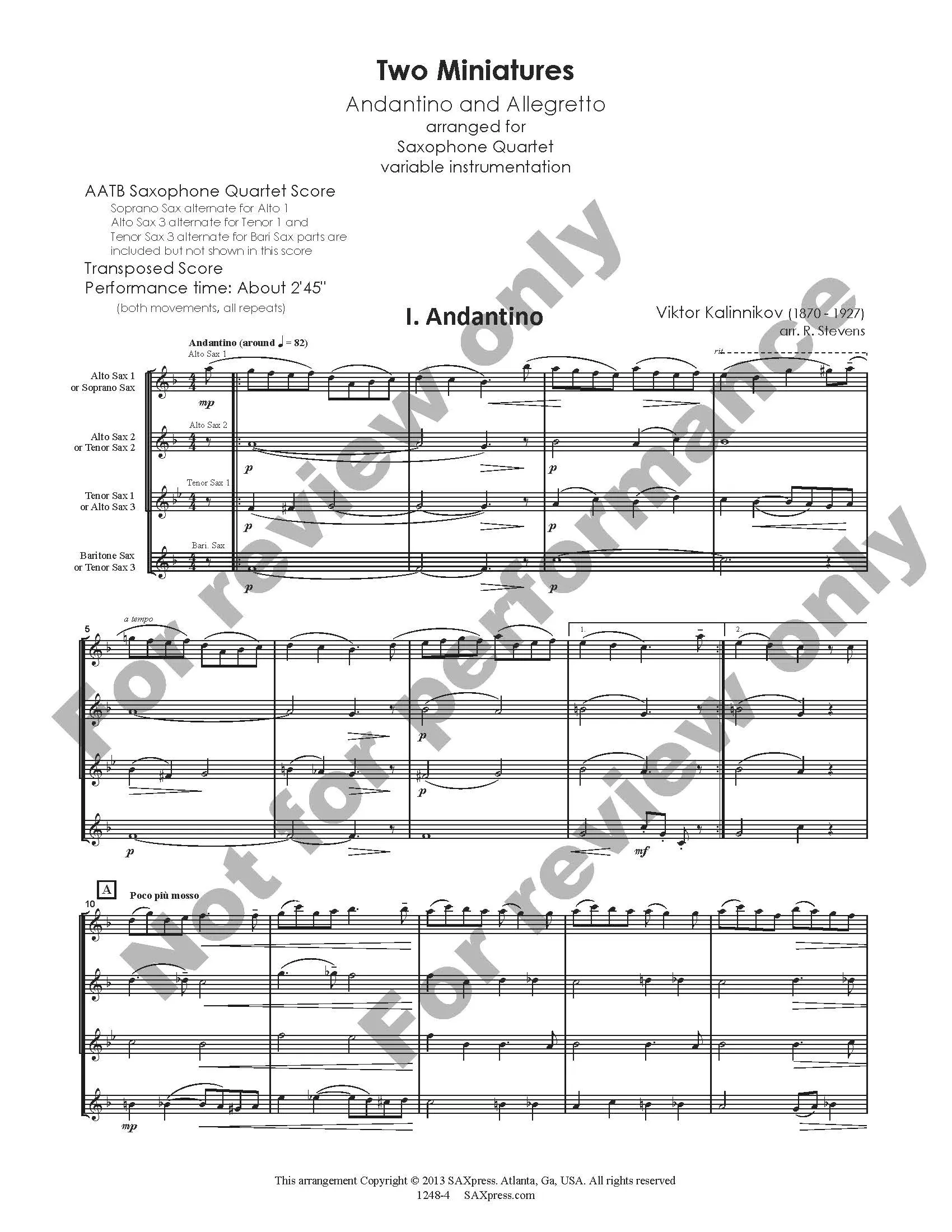
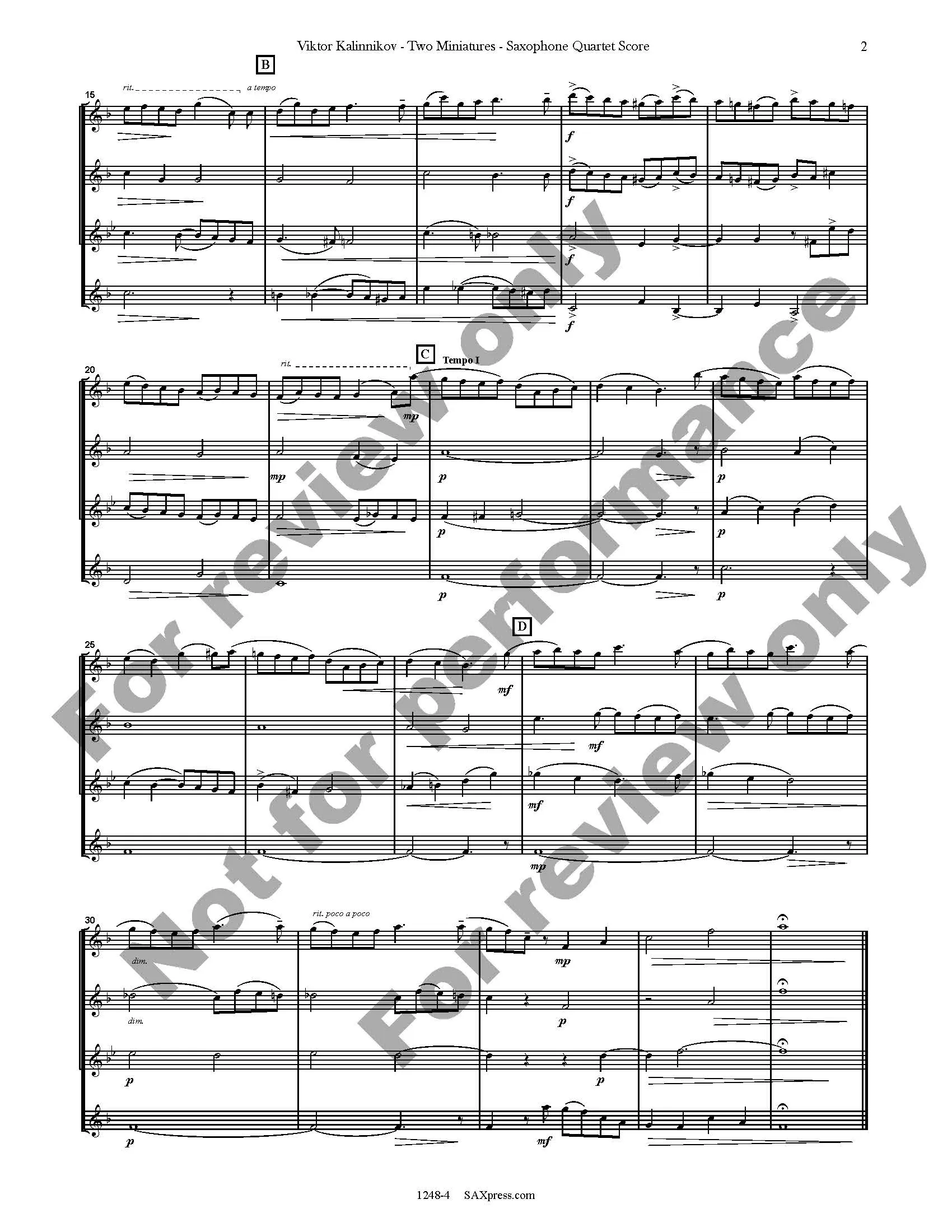
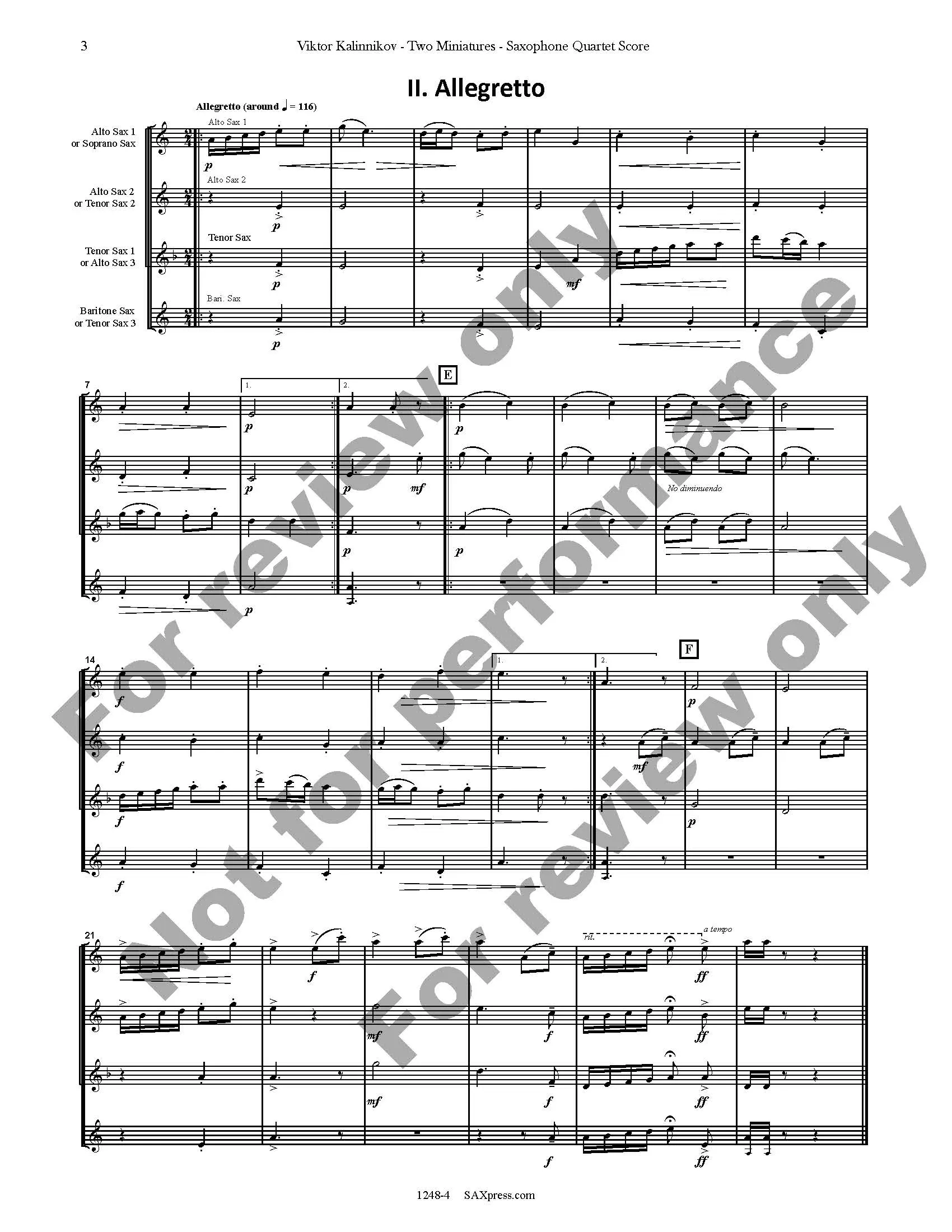
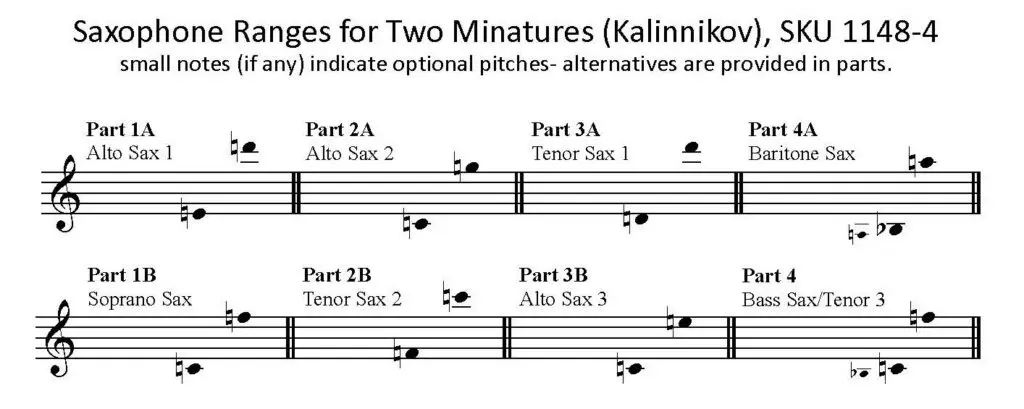
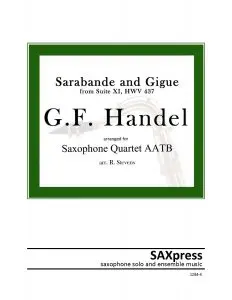
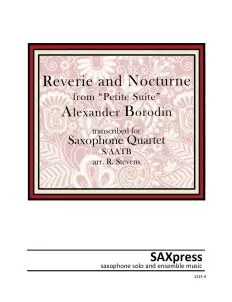
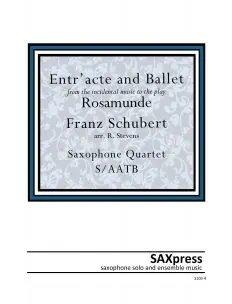
Reviews
There are no reviews yet.